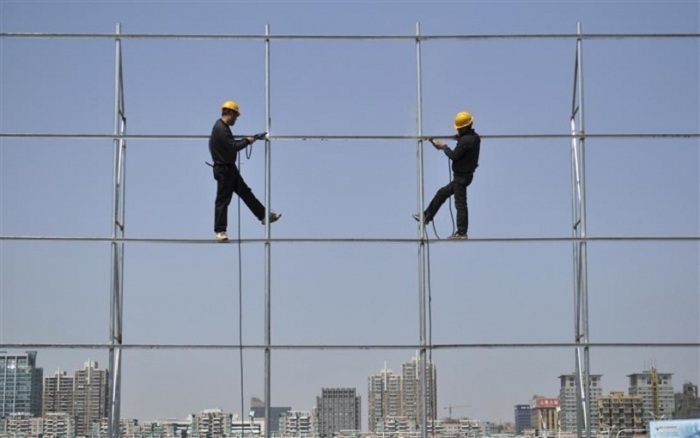It is an era, they say, when reform is still happening slowly and fitfully, but when doors may be closing rather than opening to foreign investment. As China’s giant economy slows, Xi’s government seems to be taking a more nationalist, protectionist approach to policymaking, while its handling of a stock market crash has raised fresh questions about its competence and attitude toward market forces.
The American business community here often boasts that the extensive economic ties between China and the United States form the bedrock of their broader relationship. Now, however, the mounting concerns will provide an uneasy backdrop when Xi pays an important state visit to the United States this month.
“They talk about reform, they in fact do reforms, but at the same time we see them closing up — they regress for foreign businesses and make it more difficult,” said Joerg Wuttke, president of the European Chamber of Commerce in China.
“It gives a feeling that they are renovating the house, but we as foreign companies might not be able to move into the house,” he said.
[China’s economic woes expose drawbacks of president’s power play]
In November 2013, at an important congress of China’s top leaders known as the Third Plenum, Xi’s government had encouraged foreign businesses by promising to allow market forces to play a “decisive role” in the economy.
Now, some of that reform momentum has been lost, and the mood among foreign businesses has become more subdued, Wuttke said, summing up the results of a survey of his group’s nearly 1,800 member companies. Increasingly, he said, companies were questioning or delaying investment decisions, and even laying off workers.
Wuttke said it was not clear whether China’s top leaders were willing to take on powerful state-owned enterprises or the protectionist impulses of provincial governments in order to promote a more level playing field.
“Do you have not only the vision, do you have the audacity to change, the political clout and guts to change?” he asked of China’s leaders.
Similar questions are being asked by U.S. companies.
“The perception in the business community is that reform has stalled and doors may be closing to much-needed foreign investment,” said James Zimmerman, chairman of the American Chamber of Commerce in China, arguing that Beijing needed to harness market forces rather than “turning inward for solutions to address a slowing economy.”
Optimism has been buffeted by the slowdown in China’s economy, while confidence in its leadership to handle that slowdown has been shaken by its clumsy handling of a stock market crash and a currency devaluation in recent weeks, as well as by an explosion at a chemical warehouse in the city of Tianjin last month that killed at least 145 people.
“The near-religious belief in the foreign business community of technocratic, enlightened decision-making by China’s top leadership is being challenged by the kind of actions that recently took place,” Wuttke said.
After committing itself to the rule of law at another gathering of its top leaders in 2014, the Communist Party has this year introduced new national security legislation and a law to regulate nongovernmental organizations that have provoked widespread concern in the foreign business community, who fear the specter of national security could be used to justify protectionism.
“Yes, China needs a national security law, but the wording is so opaque and so vague that a lot of possible mergers by foreign business could be impossible,” Wuttke said. “In the time of an economic slowdown, the last thing you need is legislative uncertainty.”
One of the frustrations that foreign companies face is that, as China tries to rebalance its economy, some of the most enticing market opportunities lie in service-sector industries — such as financial, health care, education and logistics. Yet those are sectors that tend to be dominated by state-owned companies and largely closed to foreign businesses.
More about:
















































